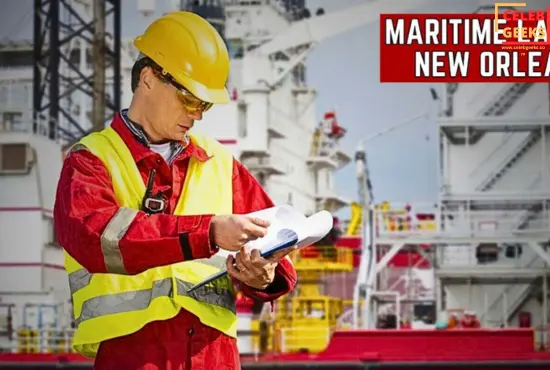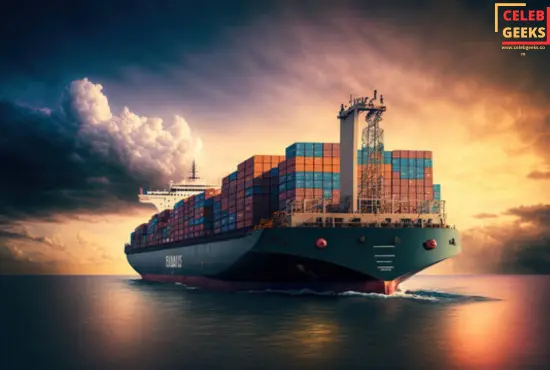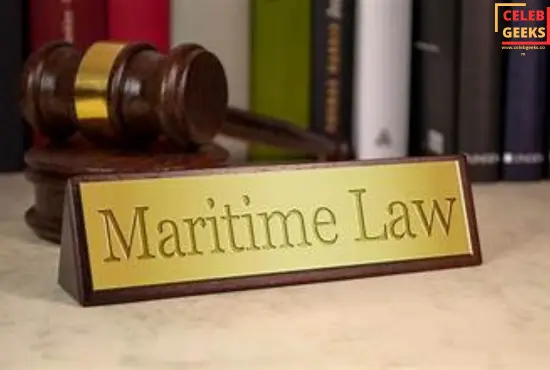A maritime lawyer new Orleans can represent offshore maritime workers and drivers with injuries on the high sea. Vessel and drill crew members suffer personal injuries and death from offshore drilling operations, including jack-up rigs, semi-submersibles, IDBs; and offshore tugs, crew boats, lifeboats, workboats, and supply boats.
You can’t understand the maritime world and its own language if you haven’t worked on a vessel. You should have experience understanding how things run in this maritime world. Maritime law is unique and difficult to understand; therefore, an experienced maritime lawyer is required to maximize recovery under whichever maritime laws may apply.
The role new orleans maritime attorneys

A maritime lawyer new Orleans are expert in the region of legal matters related to navigable waters. Their understanding covers all of the following legal issues:
Admiralty Law:
This body of law governs maritime questions and offenses, encompassing both domestic and international maritime.
Jones Act Claims:
According to the Jones Act, crew members might be compensated if they are harmed while working from and on board ships. Lawyers sort out the complexities of such claims.
Longshore and Harbor Workers’ Compensation Act (LHWCA):
According to the Jones Act, certain members of the maritime workers have a right to get compensation if they got injuries on navigable water or region that related to those water. Lawyers can help sort out the appeals and such applications.
Vessel Documentation and Registration:
Legal complaints depend upon the proper documentation of boats. Maritime lawyers can help you in the legal process.
Maritime Contracts:
Contracts related to renting, shipping, and marine services claim reasonable legal verifications against established principles. Lawyers can help in verifying the application and enforcement of the contract.
Environmental Regulations:
Louisiana’s unique coastal ecosystem, marine lawyers handled the cases that were related to pollution, oil spills, and compliance.
Common Maritime Accidents In New Orleans

There are many different kinds of maritime accidents. It is rare to escape from outdoor vacations, and shipboard vacations take an unpleasant turn in sickness, severe injuries due to malfunctioning equipment, or insufficient safety measurements.
Often, maritime workers work in harmful ship conditions and extreme temperatures. Therefore, they face severe injuries when their materials or equipment fails.
Some of the common maritime accidents we deal with in New Orleans include:
Cruise Ship Accidents & Injuries
Cruise Ship Rape
Cruise Passenger Disappearances
Cruise Ship Drowning Accidents
Seaman’s Claims
Cruise Ship Overboard Accidents
Boating Accidents
Yacht Accidents
Cruise Ship Medical Malpractice
Jet Ski Accidents
Parasailing Accidents
Scuba Diving Accidents
Barge, Cargo, and Tanker Accidents
Commercial Fishing Accidents
Shore Excursion Accidents
Hotel, Resort, and Vacation Accidents
Hotel Rape anted Sexual Assault
Maritime Law and the Local Economy

The maritime sector has an important role in New Orleans’ economy. One of the busiest ports is the Port of New Orleans in the country of the United States which has a capacity of millions of tons annually. This economic activity creates a need for legal services to fill numerous gaps businesspeople experience in the sector.
Key Industries Influencing Maritime Law in New Orleans:
Shipping and Logistics:
This movement of products is further accompanied by the Mississippi River and Gulf of Mexico, which therefore requires representation in shipping contracts, cargo claims, and vessel operation.
Fishing and Seafood Processing:
The commercial fishing industry continues to form one of New Orleans’s lifelines. Maritime lawyers often represent fishermen concerning issues associated with safety regulations, licensing, and employment.
Oil and Gas:
In light of the fact that Louisiana has vast deposits of oil and gas, most of the maritime lawyers are involved with such offshore drilling and exploration, coupled with issues like environmental compliance and worker safety.
The Process of Hiring a Maritime Lawyer
Some of the considerations when hiring a maritime lawyer new Orleans are:
Experience and Expertise:
Look for one attorney with a long experience history in maritime law and a strong success record on cases of this type.
Reputation:
You can start by searching online, reading reviews, and reviewing past case results by former clients as a means to get some idea about a lawyer’s reputation within the legal community.
Communication Skills:
A good lawyer should be able to explain complicated legal concepts in simple terms that everyone can understand. Additionally, they must be responsive and available to communicate.
Fees and Costs:
It is also very important that you understand the lawyer’s fee structure, whether they charge by the hour, on a flat fee basis or if they work on a contingency basis.
Initial Consultation:
Many lawyers who litigate for their clients in maritime claims offer free initial consultation. Take that chance to discuss your case and decide whether such a lawyer may suit your needs.
The Legal Process in Maritime Cases
Maritime cases can vary widely, but they follow certain legal processes most of the time:
Investigation:
In cases where a maritime attorney has been retained, it becomes helpful to investigate the facts surrounding the incident or issue. Such an investigation can involve gathering evidence, conducting witness interviews, or reviewing relevant documents.
Filing a Claim:
Depending on the type of case, the attorney will file a complaint or lawsuit in the proper jurisdiction. This can sometimes be in federal courts, particularly if it deals with issues under federal maritime law.
Negotiation and Settlement:
About 90% of maritime cases settle out of court, and lawyers will work to get them a settlement that will properly compensate their clients.
Trial:
If a settlement cannot be reached, then the case is taken to trial. The maritime attorney represents his or her client in court by presenting the evidence for his case through examination and argument.
Appeals:
If the party is not satisfied with the result of the trial, it can further move the case forward by appealing. Maritime attorneys can act to represent an individual throughout the appeal process, after which a higher court can consider submitting legal arguments to both parties.
The future of maritime lawyer new orleans
Since New Orleans will continue playing an important role in global maritime trade, there would possibly be a significant requirement for maritime attorneys. Some of the emerging trends that would shape the future of maritime law are:
Increased Regulation:
As the environmental concerns are growing, so is the need for regulating maritime operations, thus increasing the call for legal advice.
Technological Advancements:
The maritime industry now develops rapidly in terms of automation, cybersecurity, and data management. Lawyers should educate themselves and keep track of the drive of legal issues that come with this change.
Globalization:
As interconnecting trade routes expand, maritime lawyers can expect to see more cross-border issues that need international experience in their lines of work.
Sustainability:
The good news for the lawyers comes with the fact that as the maritime industry adopts sustainable practices in its operation, lawyers will be expected to advise clients on standards of compliance and best practices in such areas.
Frequently Asked Questions
1. What is maritime law?
Maritime law, sometimes called admiralty law, refers to the body of activities regulated by this law in navigable waters, including shipping, navigation, and marine commerce. Its scope crosses various legal issues, such as personal injuries, cargo disputes, and the operations of vessels.
2. Are accidents and injuries that occur on navigable waters treated differently from those occurring on land?
Yes. Though injuries and aftermath of accidents on land or in sea will be almost similar; the law governing such personal injury cases is very different.
3. Are all people injured on navigable waters treated equally under maritime law?
If you were injured on the water, remedies under maritime law might depend upon how the law categorized your activity or presence in the water. Applicable maritime law depended upon whether you were a crew member or shore-side employee, passenger or, with pleasure boats, owner or guest aboard the vessel. These various classifications can lead to different remedies and different results.
4. Are there different deadlines for maritime claims than for nonmaritime claims?
Of course, there are laws and limitations on these types of cases. That is exactly why you would want to hire attorneys who understand very strict and complex laws and are constantly taking on admiralty and maritime injuries and casualties cases.
5. How much does hiring a maritime lawyer new Orleans cost?
Another cost-related difference is very high, depending on the lawyer’s experience, the type of case, and even the fee structure. Very often, lawyers offer you a free initial consultation to discuss the case and the costs involved.
Matching your interest:
car accident lawyer Jacksonville, a complete guide
